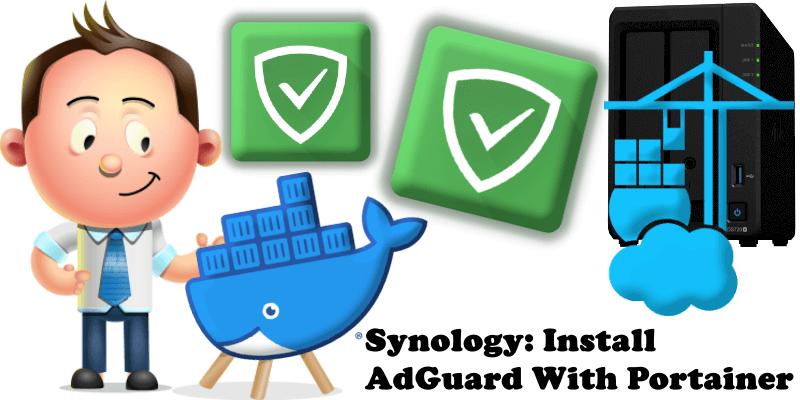
My previous guide for AdGuard involved the use of Task Scheduler. Today I’m offering a recommended and excellent alternative for installing the latest AdGuard version via Portainer. AdGuard is DNS ad blocking similar to Pi-Hole. It’s a privacy protection software which comprises open-source and shareware products that protect Microsoft Windows, Linux, OS X, Android and iOS users from unwanted ads, pop-ups, banners, as well as from tracking, obscene content, malware and phishing. Over 5 million people are reported to be using the software in 2018 and 7 million in 2019 with very fast growth. AdGuard is not only an ad blocker, but a whole ad blocking and privacy protection suite, a must-have product if you have a Synology NAS device. AdGuard Home intercepts and filters DNS requests. It works as a DNS server and prevents all the devices in a home network from connecting to the servers that track user browsing. In this step by step guide I will teach you how to install AdGuard on your Synology NAS device using Docker & Portainer.
STEP 1
Please Support My work by Making a Donation.
STEP 2
Install Portainer using my step by step guide. If you already have Portainer installed on your Synology NAS, skip this STEP. Attention: Make sure you have installed the latest Portainer version.
STEP 3
Go to File Station and open the docker folder. Inside the docker folder, create one new folder and name it adguard. Follow the instructions in the image below.
Note: Be careful to enter only lowercase, not uppercase letters.
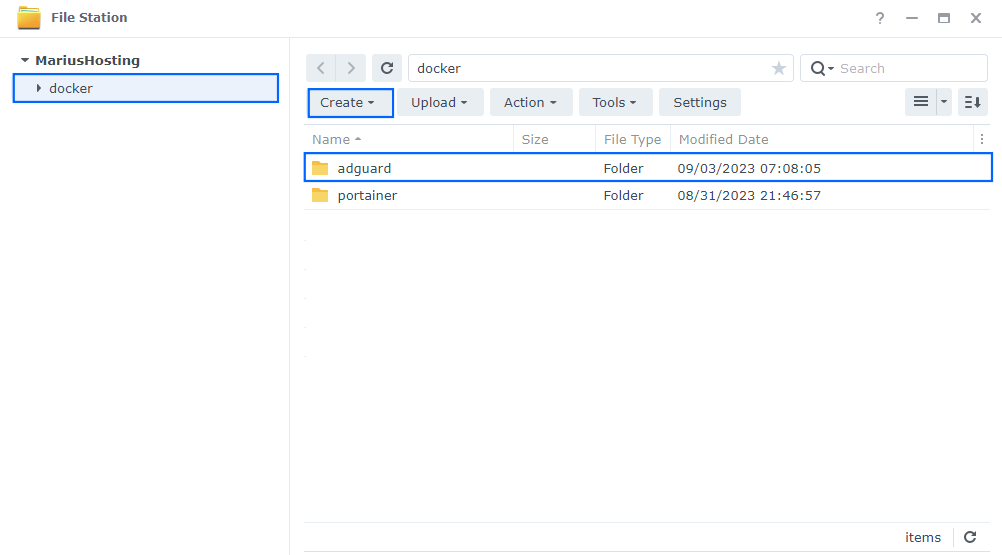
STEP 4
Now create two new folders inside the adguard folder that you previously created at STEP 3 and name them config and data. Follow the instructions in the image below.
Note: Be careful to enter only lowercase, not uppercase letters.
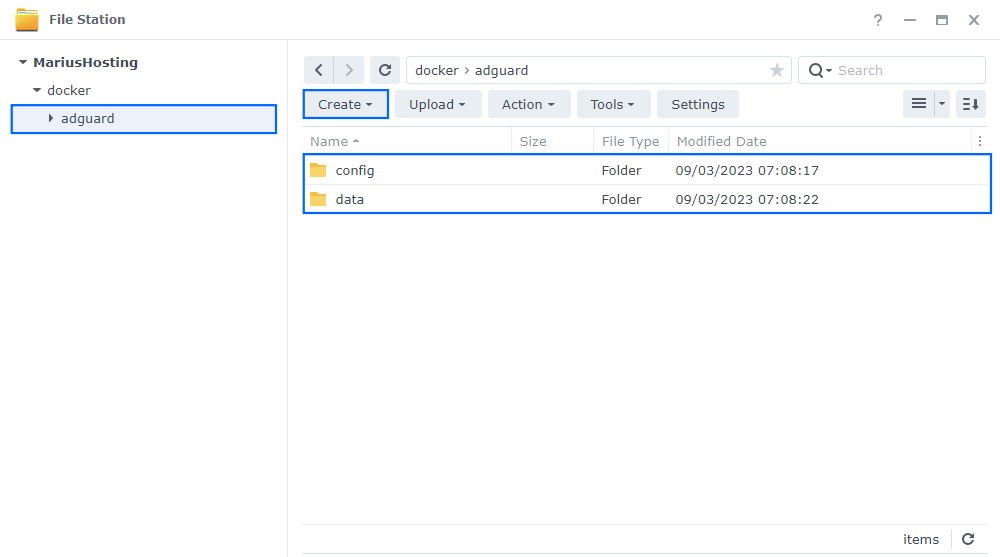
STEP 5
Log into Portainer using your username and password. On the left sidebar in Portainer, click on Home then Live connect. Follow the instructions in the image below.

On the left sidebar in Portainer, click on Stacks then + Add stack. Follow the instructions in the image below.

STEP 6
In the Name field type in adguard. Follow the instructions in the image below.
services:
adguard:
image: adguard/adguardhome
container_name: AdGuard
mem_limit: 2g
cpu_shares: 768
security_opt:
- no-new-privileges:true
network_mode: host
volumes:
- /volume1/docker/adguard/config:/opt/adguardhome/conf:rw
- /volume1/docker/adguard/data:/opt/adguardhome/work:rw
environment:
TZ: Europe/Bucharest
restart: on-failure:5
Note: Before you paste the code above in the Web editor area below, change the value for TZ. (Select your current Time Zone from this list.)
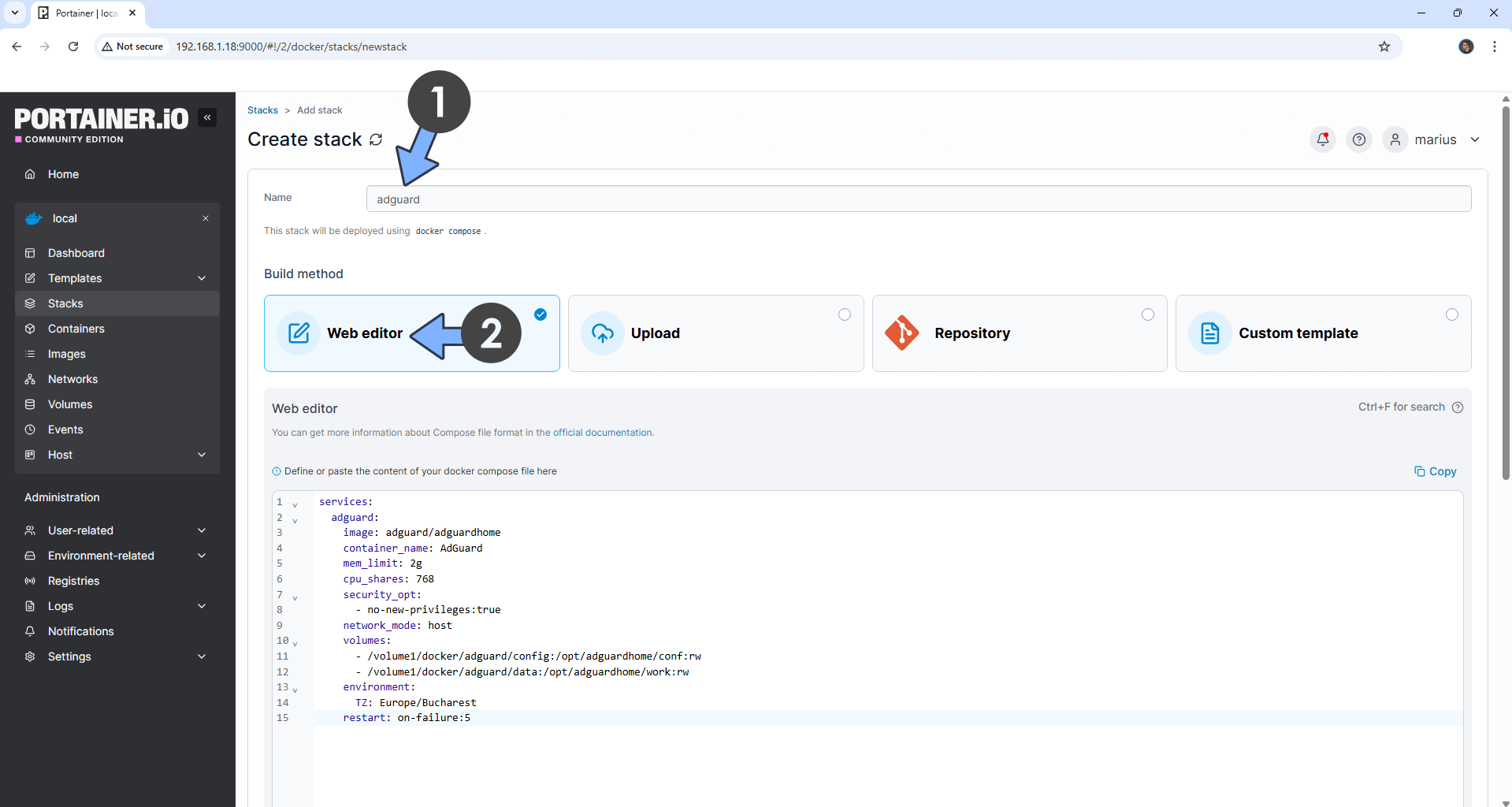
STEP 7
Scroll down on the page until you see a button named Deploy the stack. Click on it. Follow the instructions in the image below. The installation process can take up to a few minutes. It will depend on your Internet speed connection.
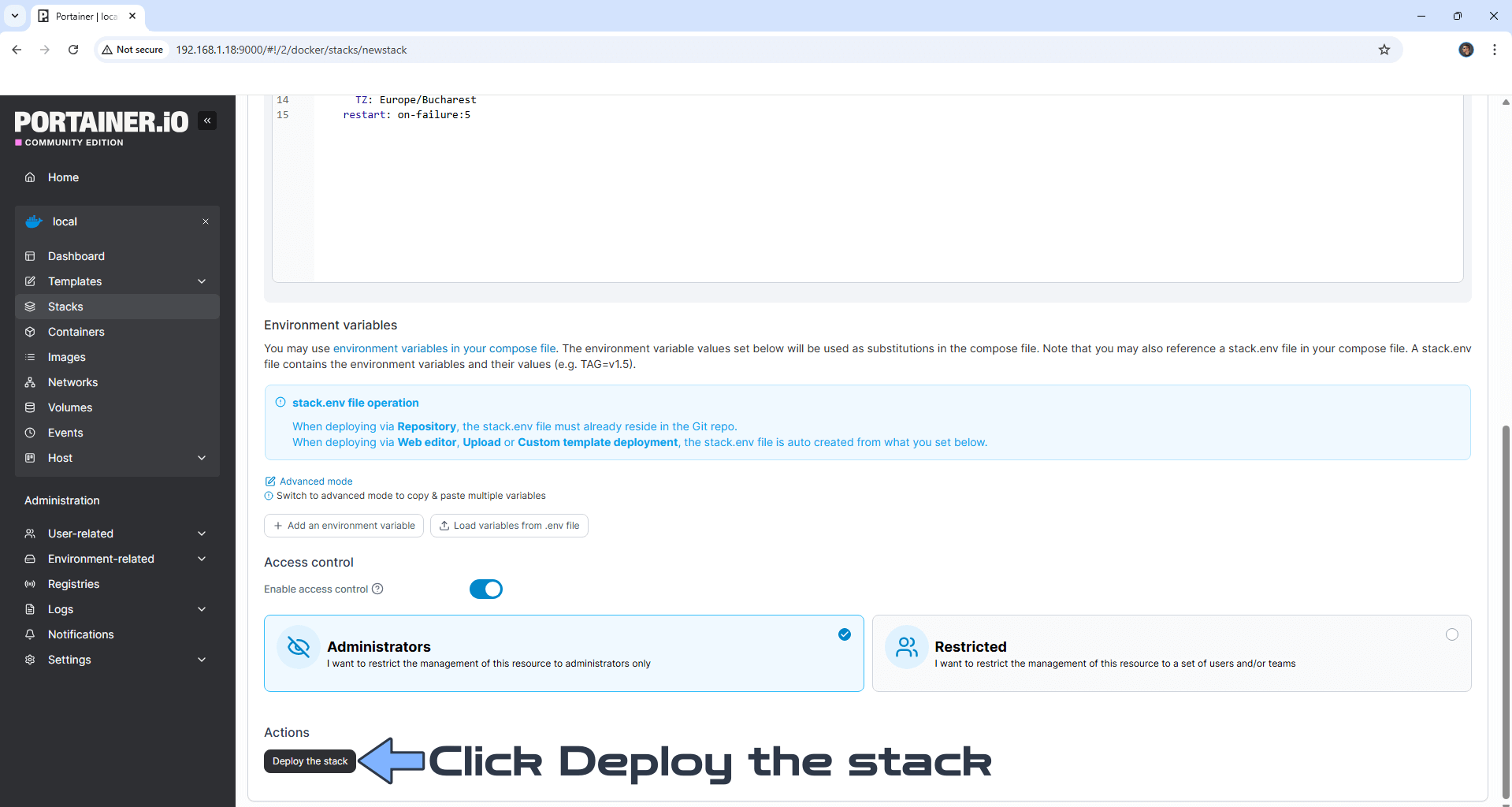
STEP 8
If everything goes right, you will see the following message at the top right of your screen: “Success Stack successfully deployed“.

STEP 9
🟢Please Support My work by Making a Donation. Almost 99,9% of the people that install something using my guides forget to support my work, or just ignore STEP 1. I’ve been very honest about this aspect of my work since the beginning: I don’t run any ADS, I don’t require subscriptions, paid or otherwise, I don’t collect IPs, emails, and I don’t have any referral links from Amazon or other merchants. I also don’t have any POP-UPs or COOKIES. I have repeatedly been told over the years how much I have contributed to the community. It’s something I love doing and have been honest about my passion since the beginning. But I also Need The Community to Support me Back to be able to continue doing this work.
STEP 10
The installation process can take up to a few seconds/minutes. It will depend on your Internet speed connection. Now open your browser and type in http://Synology-ip-address:3000 Click Get Started. Follow the instructions in the image below.
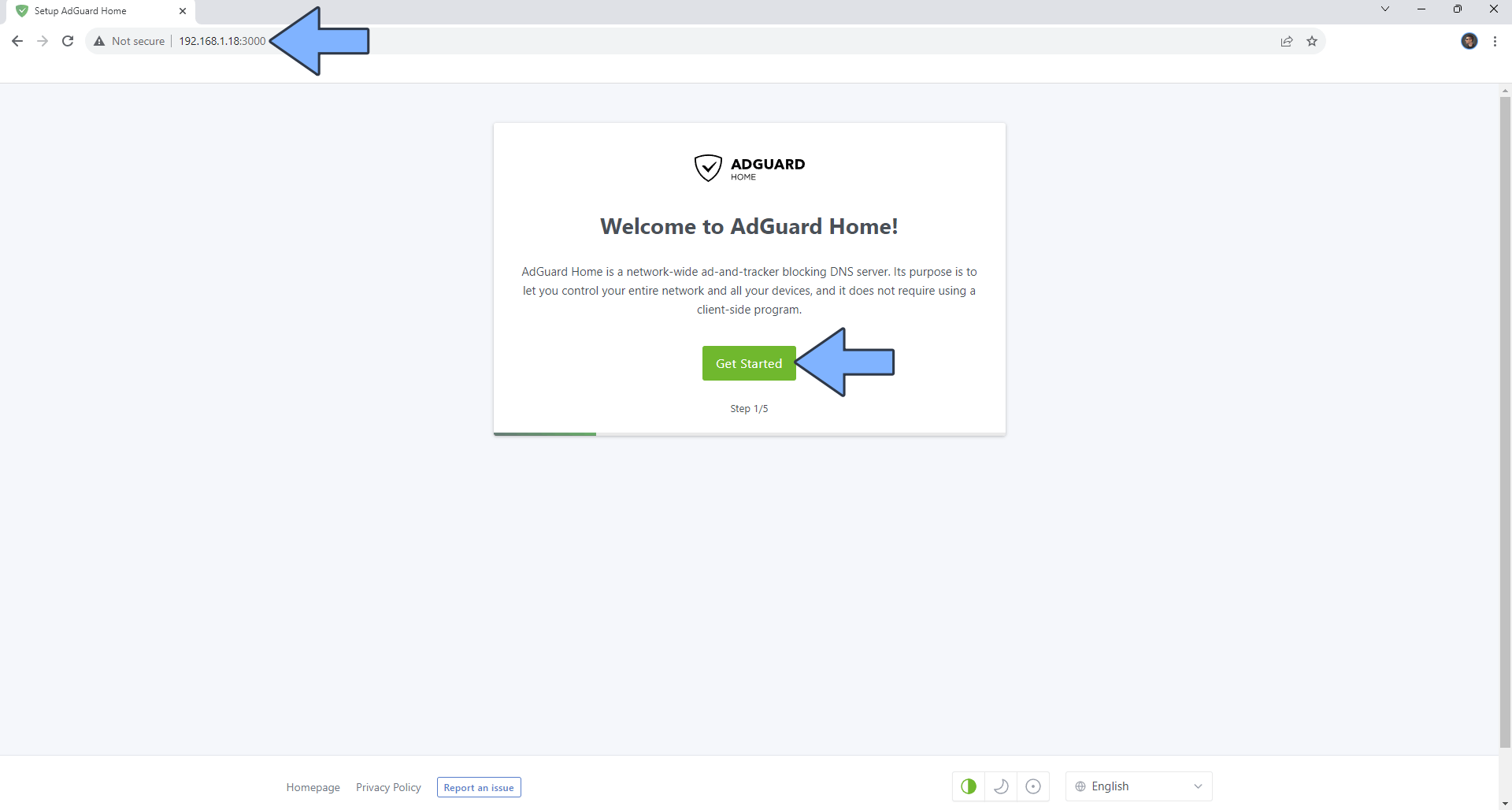
STEP 11
Change the default port 80 to 9080 then click Next. Follow the instructions in the image below.
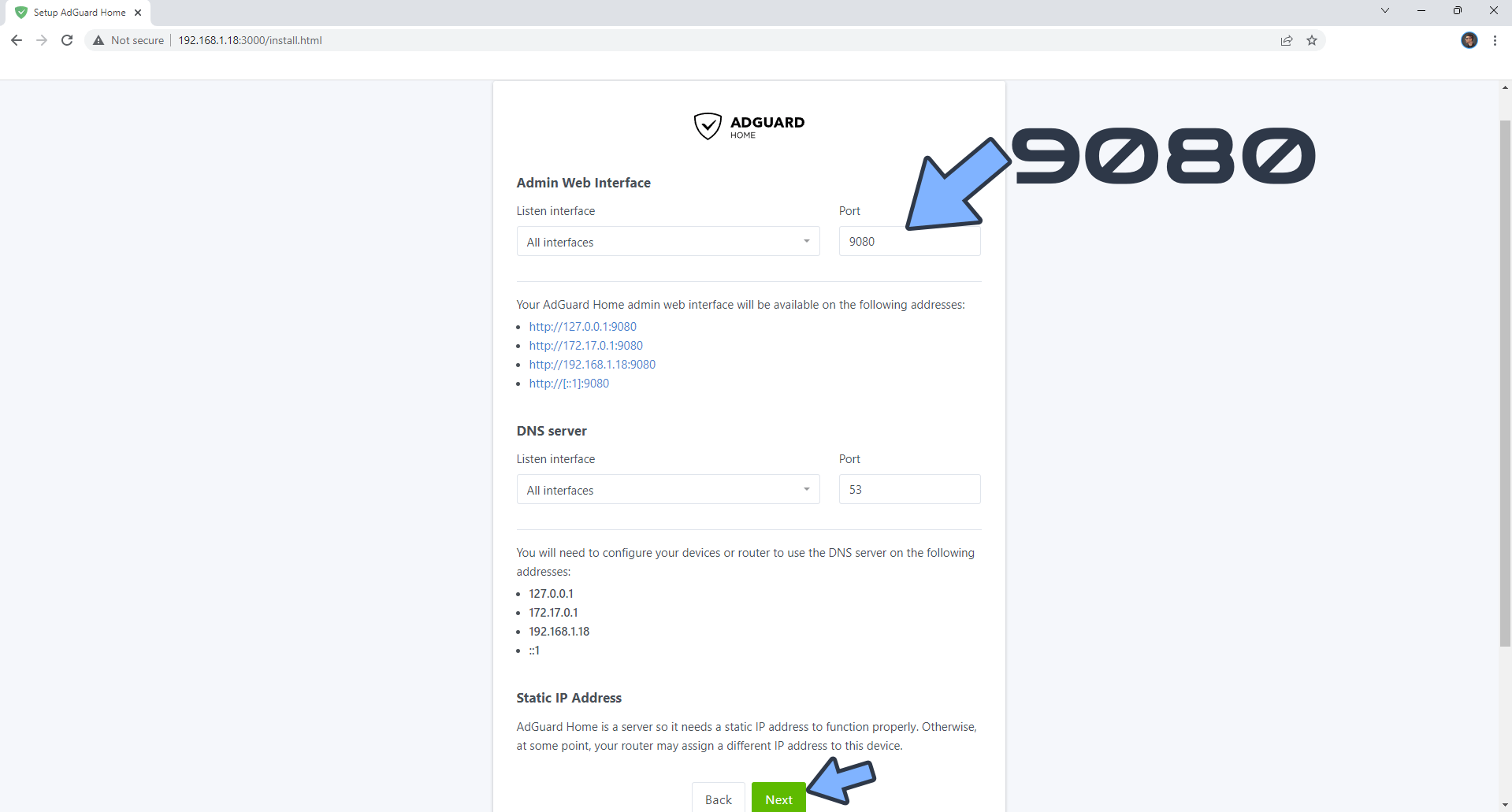
Note: DNS Server Error message: listen udp 0.0.0.0:53: bind: address already in use. In this scenario something else is listening on the local DNS port 53 or AdGuard Home doesn’t have privileges. Uninstall or stop Pi-Hole if you have Docker Pi-Hole installed on your Synology NAS. Disable DHCP on your Synology NAS with DSM 6.2.4 in Control Panel / DHCP Server then select “Disable DHCP Server” or if you are running DSM 7.1 or DSM 7.2 uninstall the DHCP Server package or the DNS Server through Package Center. If this works, don’t forget to go back to STEP 1.
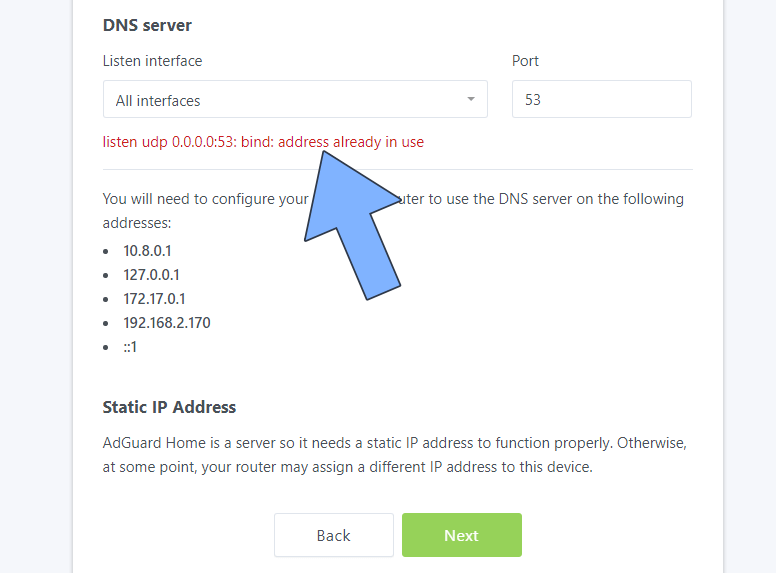
STEP 12
Add your own Username and Password then click Next. Follow the instructions in the image below.
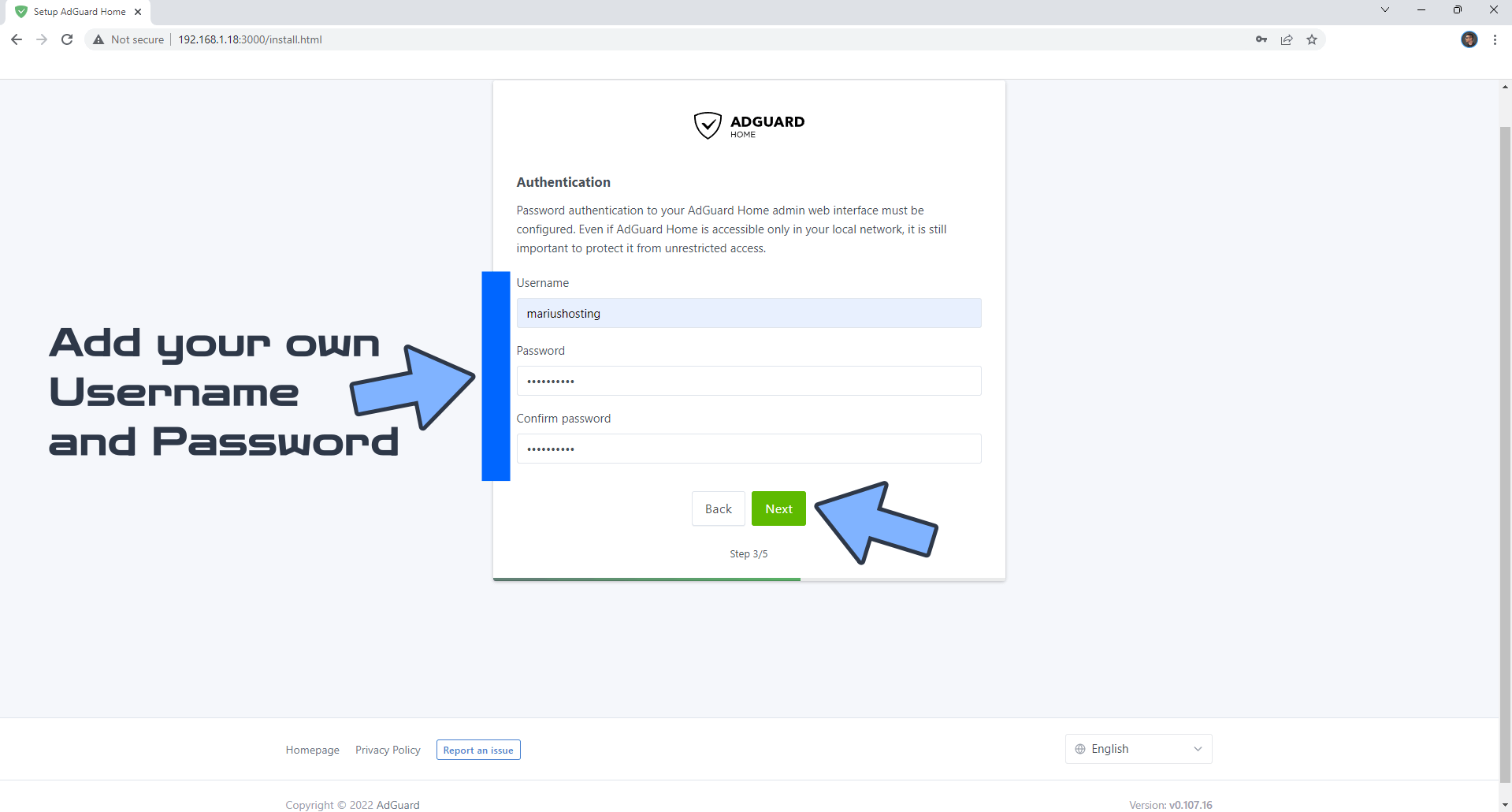
STEP 13
Click Next. Follow the instructions in the image below.
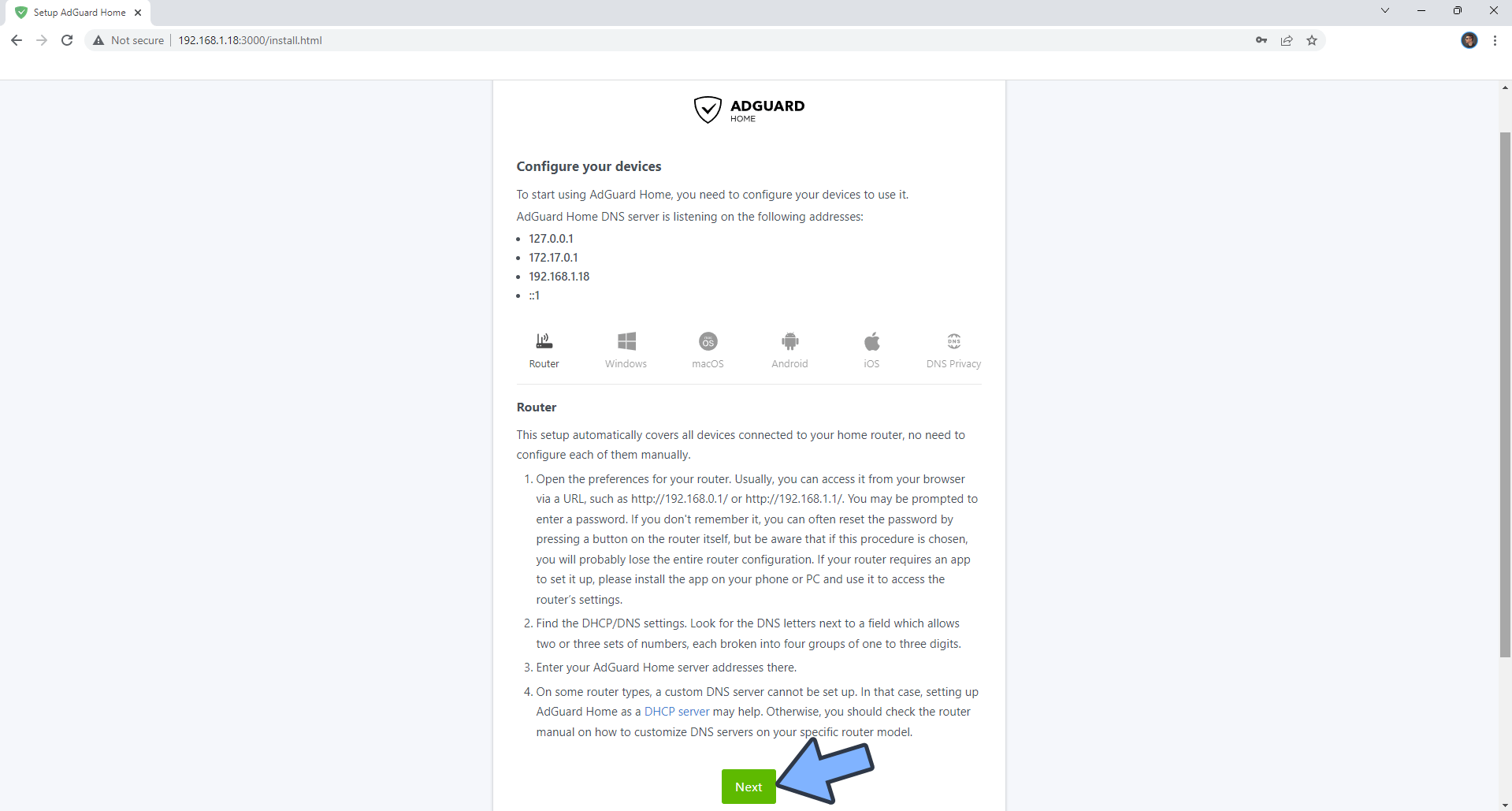
STEP 14
Click Open Dashboard. Follow the instructions in the image below.
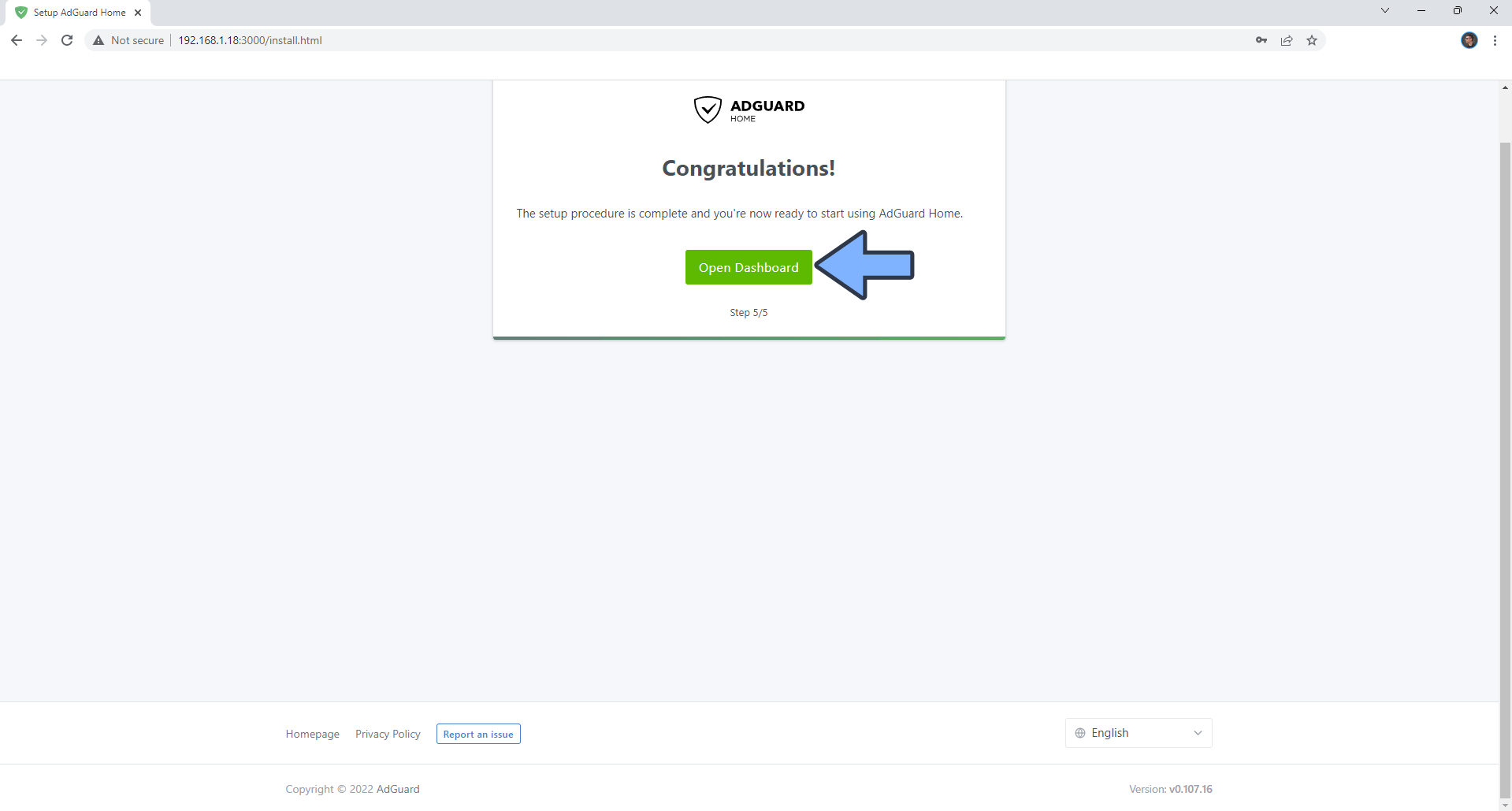
STEP 15
Type in your own Username and Password that you have previously created at STEP 12. Click Sign in. Follow the instructions in the image below.
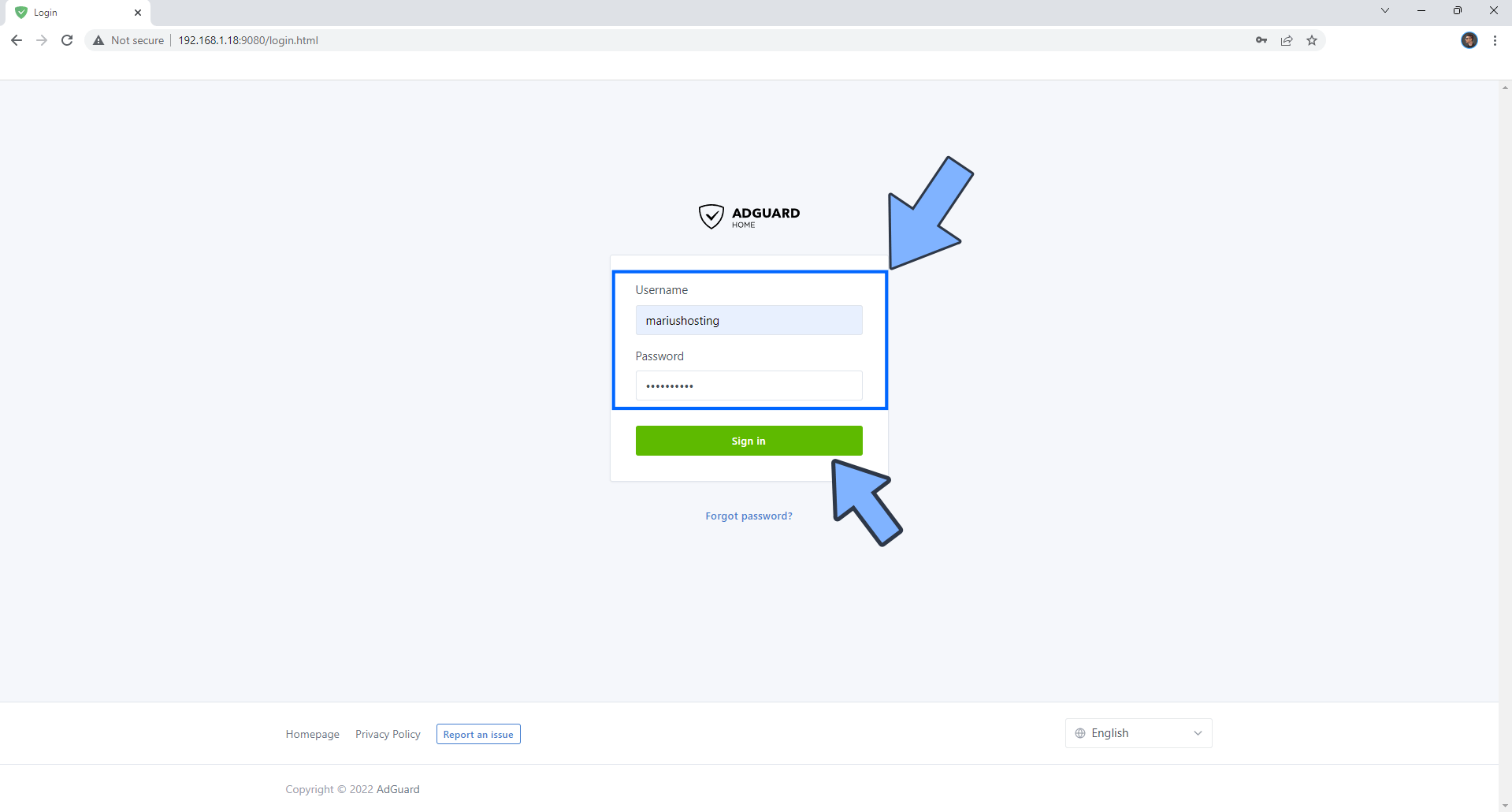
Your AdGuard Dashboard at a glance!
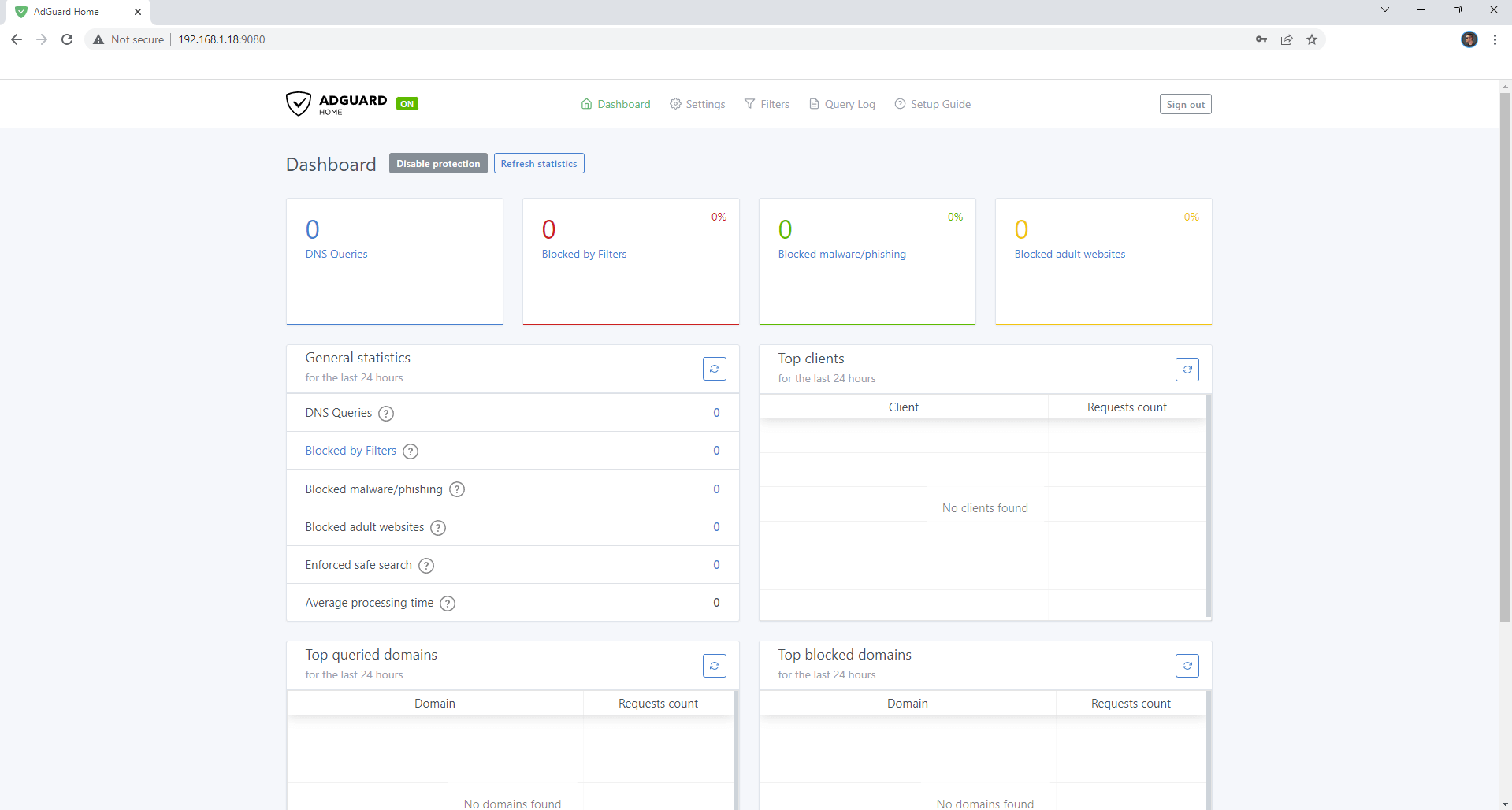
Stop ADS from the web with AdGuard!
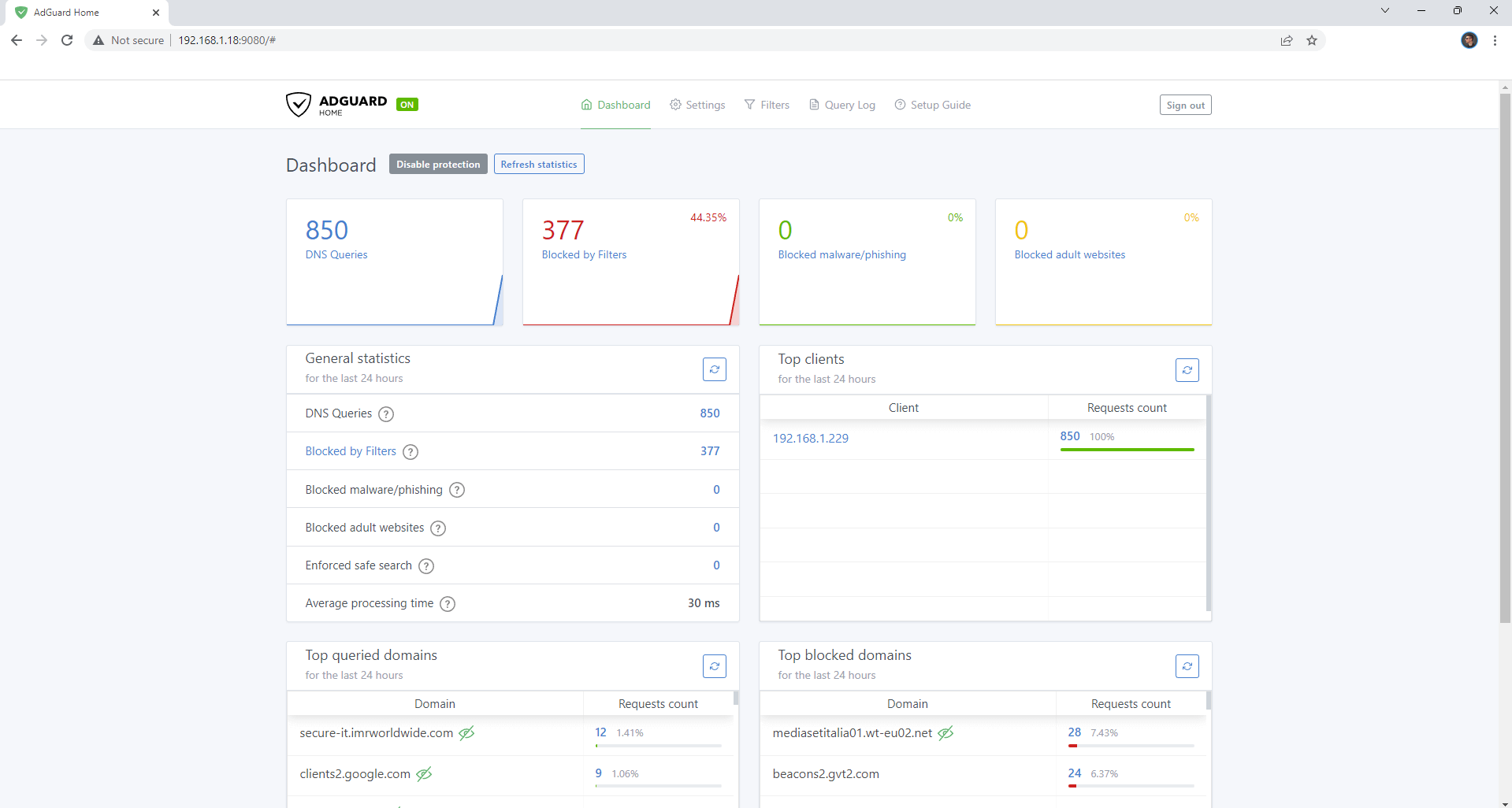
You can also activate Dark Mode on AdGuard. At the end of the page click the Dark icon to switch the theme to Dark Mode. Follow the instructions in the image below.
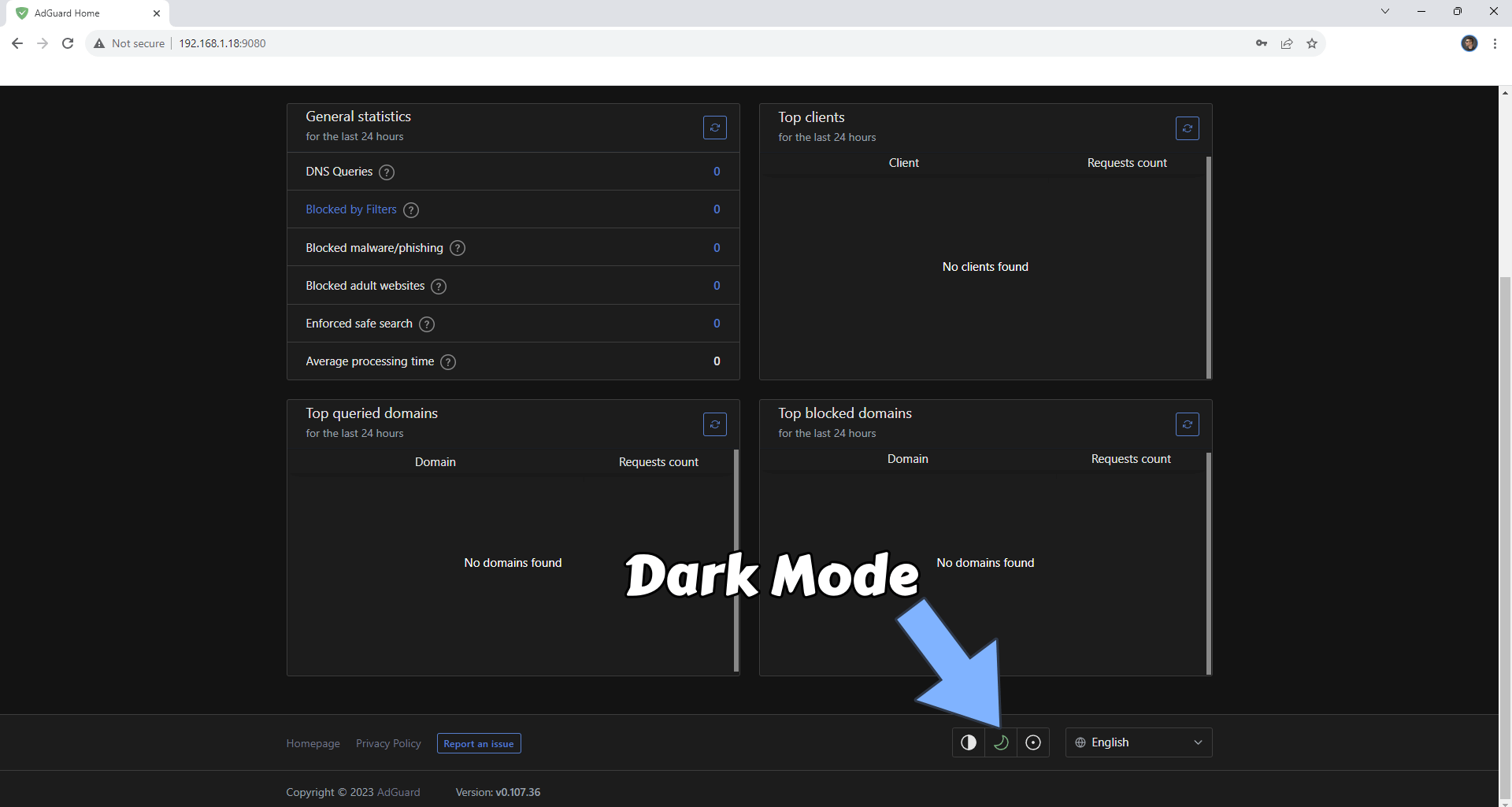
Note: Admin Web Interface Error message: listen tcp 0.0.0.0:80 bind: address already in use. This means that something on your system, probably a web server like Apache, is already listening on port 80. Follow the instructions at STEP 11 and change the current port from 80 to 9080.
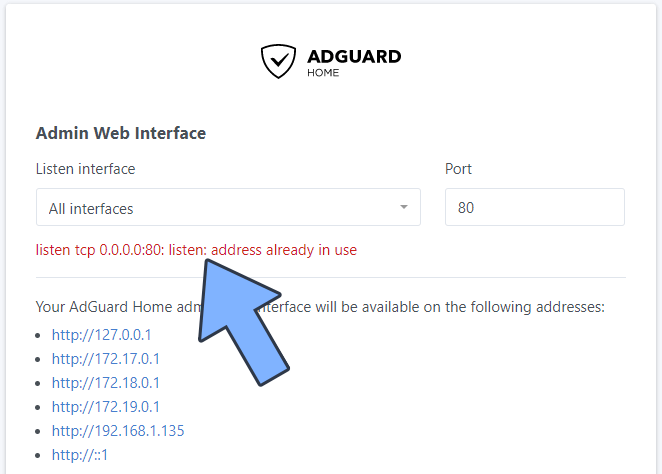
Note: Find out How to update the AdGuard container with the latest image.
Note: How to Back Up Docker Containers on your Synology NAS.
Note: Can I run Docker on my Synology NAS? See the supported models.
Note: How to Free Disk Space on Your NAS if You Run Docker.
Note: How to Schedule Start & Stop For Docker Containers.
Note: How to Activate Email Notifications.
Note: How to Add Access Control Profile on Your NAS.
Note: How to Change Docker Containers Restart Policy.
Note: How to Use Docker Containers With VPN.
Note: Convert Docker Run Into Docker Compose.
Note: How to Clean Docker.
Note: How to Clean Docker Automatically.
Note: Best Practices When Using Docker and DDNS.
Note: Some Docker Containers Need WebSocket.
Note: Find out the Best NAS Models For Docker.
Note: Activate Gmail SMTP For Docker Containers.
This post was updated on Monday / December 15th, 2025 at 5:57 PM
